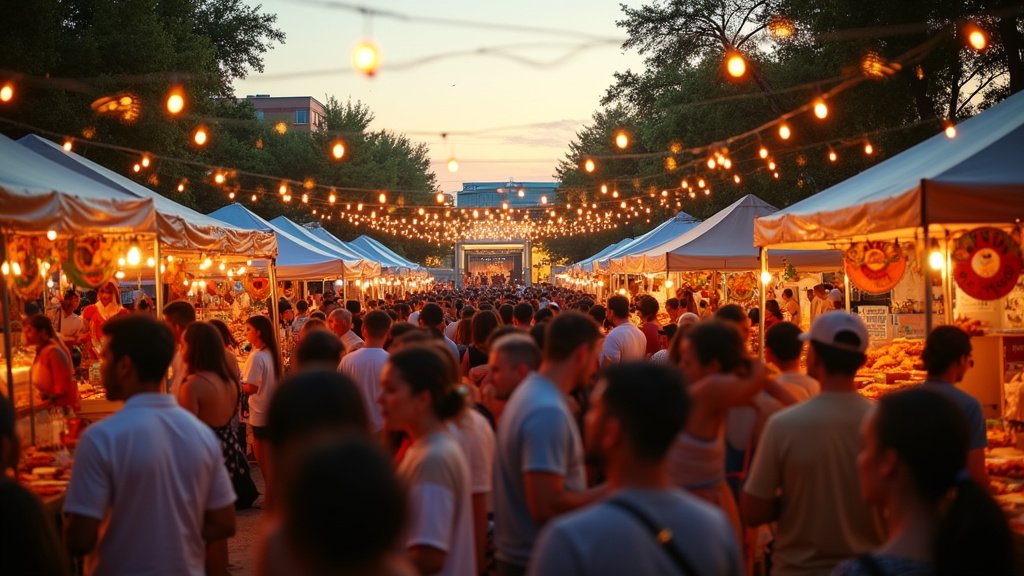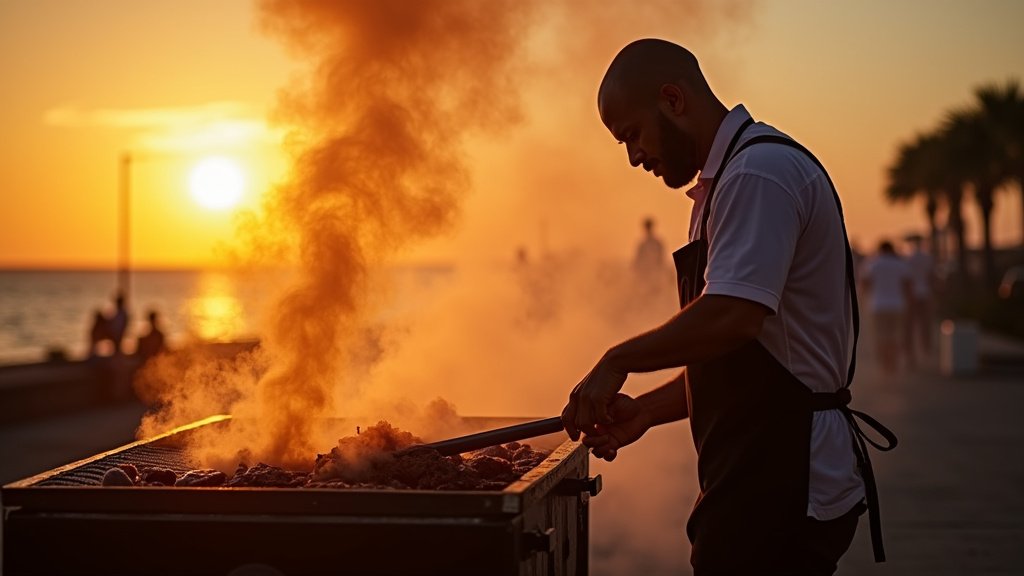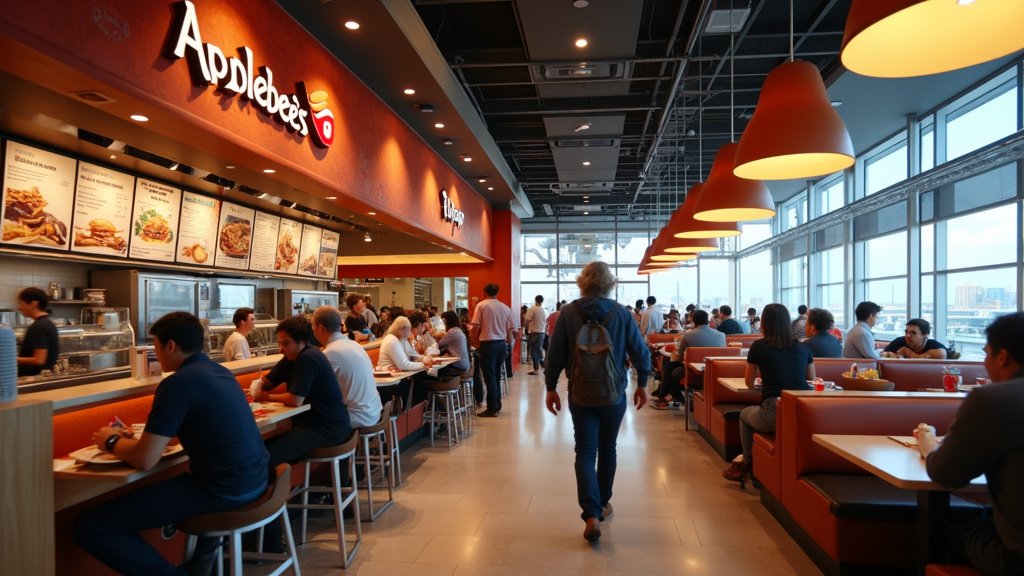Texas experienced a dynamic and eventful late August and early September 2025, characterized by a vibrant array of food festivals, a sobering number of restaurant closures across major cities, and the implementation of significant new state laws impacting the food industry. This period saw the state’s culinary landscape in constant flux, from celebratory gatherings to regulatory adjustments, reflecting both the challenges and the enduring appeal of Texas’s food culture.
Culinary Celebrations Take Center Stage
As summer wound down, Texans gathered for several high-profile food and beverage events. San Antonio hosted the Texas Eats Food Festival on September 20, 2025, at the Boeing Center at Tech Port. This much-anticipated event featured 21 restaurants, showcasing the diverse flavors of the Lone Star State, from barbecue to Tex-Mex and fusion cuisine. Proceeds from the festival benefited the Community Foundation of the Texas Hill Country for flood relief efforts, underscoring the sector’s commitment to community support. Live music from San Antonio band Gunpowder Soup provided an entertainment backdrop to the culinary explorations.
Further south, Galveston Island welcomed the Galveston Island Wine Festival from August 29-31, 2025. Held at Moody Gardens, the festival offered wine and spirit tastings, food pairings from Gulf Coast restaurants, and marine-animal encounters. The event also served as a platform for the Texas Music Festival, with performances by various artists, and supported Hill Country flood recovery efforts. The festival provided a sophisticated blend of oenology, gastronomy, and local culture.
Anticipation also built for the State Fair of Texas in Dallas, scheduled from September 26 to October 19, 2025. The fair released its comprehensive guides for its Arts & Crafts and Cooking Contests, inviting Texans to showcase their creative talents. With over 1,100 arts and crafts categories and 26 cooking contests, including popular events like the Pizza Cook-Off and Tex-Mex challenges, the fair continues its tradition of celebrating homegrown skills and culinary competitions.
A Shifting Restaurant Landscape: Closures and Challenges
Despite the festive atmosphere, the period was also marked by notable restaurant closures across Texas. In San Antonio, August 2025 saw the shutdown of several establishments, including the upscale Mexican eatery Bokobá, which closed less than a year after opening, and a Jim’s Restaurant location on Bandera Road and Loop 1604, which ceased operations on August 19 after 27 years, citing accessibility issues due to road design changes. Bowl & Barrel and The General Public at The Rim also shuttered in August.
The Dallas-Fort Worth metroplex experienced a significant wave of closures. Approximately 13 restaurants and bars ceased operations during the summer. Among these were The Coupe, a champagne bar in Fort Worth that closed on August 9, and Cru Food & Wine Bar in Uptown Dallas, which concluded its 23-year run on August 31. Other closures included Brix Barbecue in Fort Worth and Ocean Ranch, an Italian restaurant in Dallas that operated for only a few months. These closures highlighted ongoing economic pressures and market shifts affecting the hospitality sector.
Furthermore, local restaurant inspections in Tarrant County revealed some closures due to violations, indicating continued regulatory oversight within the industry.
New Legislation: Modernizing Food Laws
September 1, 2025, marked the effective date for two significant new Texas laws aimed at consumer protection and supporting small businesses. Senate Bill 541 brought substantial updates to the Texas Cottage Food Law. The legislation raised the annual gross income cap for cottage food producers from $50,000 to $150,000, expanded the types of permissible food products to include more temperature-sensitive items and allow sales through third-party vendors, and simplified local government regulations, thereby fostering entrepreneurship in home-based food businesses. New labeling requirements were also introduced to ensure consumer safety, particularly for perishable items.
Simultaneously, Senate Bill 25, dubbed the “Make Texas Healthy Again” law, introduced new food product warning label requirements. Effective September 1, 2025, this law mandates that packaged foods sold in Texas must carry a warning label if they contain certain dyes, additives, or chemicals banned by other nations like the European Union, the United Kingdom, or Canada. The warning states, “WARNING: This product contains an ingredient that is not recommended for human consumption by the appropriate authority in Australia, Canada, the European Union, or the United Kingdom.” While the actual consumer-facing labeling requirement for developed or copyrighted labels takes effect January 1, 2027, the law’s provisions are now in effect, aiming to enhance public health awareness and align Texas with international food safety standards.
Community Support Through Dining
In Houston, the conclusion of Houston Restaurant Weeks on September 1, 2025, marked another successful year for this major fundraising initiative. The event, a cornerstone of the city’s culinary calendar for over two decades, benefits the Houston Food Bank. Each specially priced prix fixe menu purchased contributed to the organization’s mission, turning dining into a powerful act of community support. The event has consistently raised millions, significantly aiding the fight against food insecurity across the region.
Overall, late August and early September 2025 proved to be a pivotal period for the Texas food and restaurant industry, a trend that continues to be a point of interest for food lovers and industry watchers alike. The blend of popular festivals, economic challenges leading to closures, and proactive legislative changes painted a complex yet dynamic picture of the state’s ever-evolving culinary scene.






